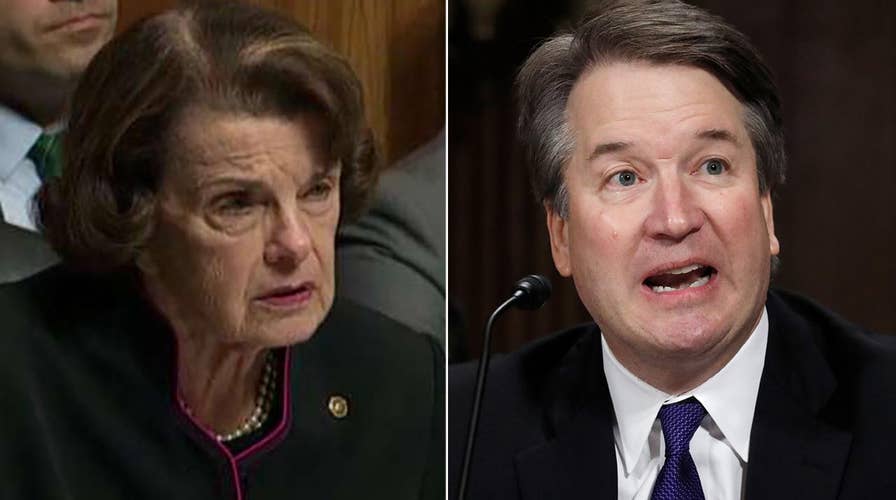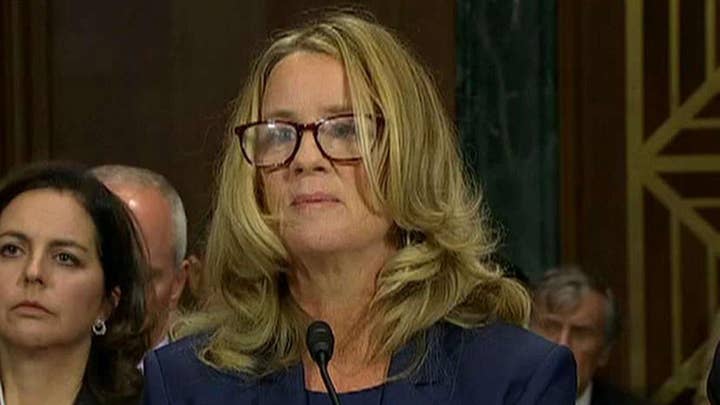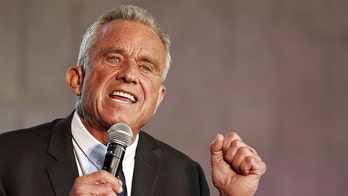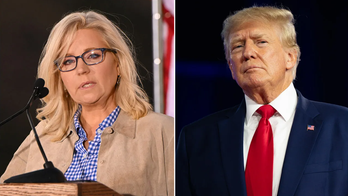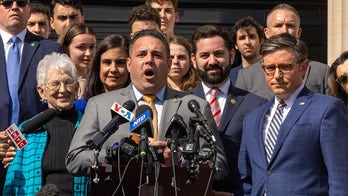Kavanaugh spars with Feinstein: It's an 'outrage'
Judge Kavanaugh speaks out about his desire to clear his name immediately following allegations while being questioned by Senator Dianne Feinstein.
For many Republicans nationally, Sen. Dianne Feinstein, D-Calif., became public enemy No. 1 for her leading role in the Democrats’ failed bid to keep Justice Brett Kavanaugh off the Supreme Court. Supporters at a recent President Trump rally even made her the new target of the familiar “lock her up” chant.
Meanwhile, her progressive challenger in California’s all-Democrat Senate race, state Senate President Pro Tem Kevin de Leon, faults her for doing too little to stop the confirmation.
The chorus of criticism from both sides shows how the aftermath of the Kavanaugh fight is weighing uniquely on the senior Democrat’s political race back home. While most Democrats who opposed Kavanaugh were cheered by the base, Feinstein ended up with a lose-lose scenario – condemned by the right for airing the sexual-assault allegations and by the left for not doing so sooner.
She faces a Democrat next month because California’s “jungle primary” advances the top two vote-getters to the general election regardless of party – in this case, both Democrats. Despite the Kavanaugh fallout, Feinstein has retained a comfortable lead in the polls.
The incumbent and her challenger are set to face off at a debate Wednesday.
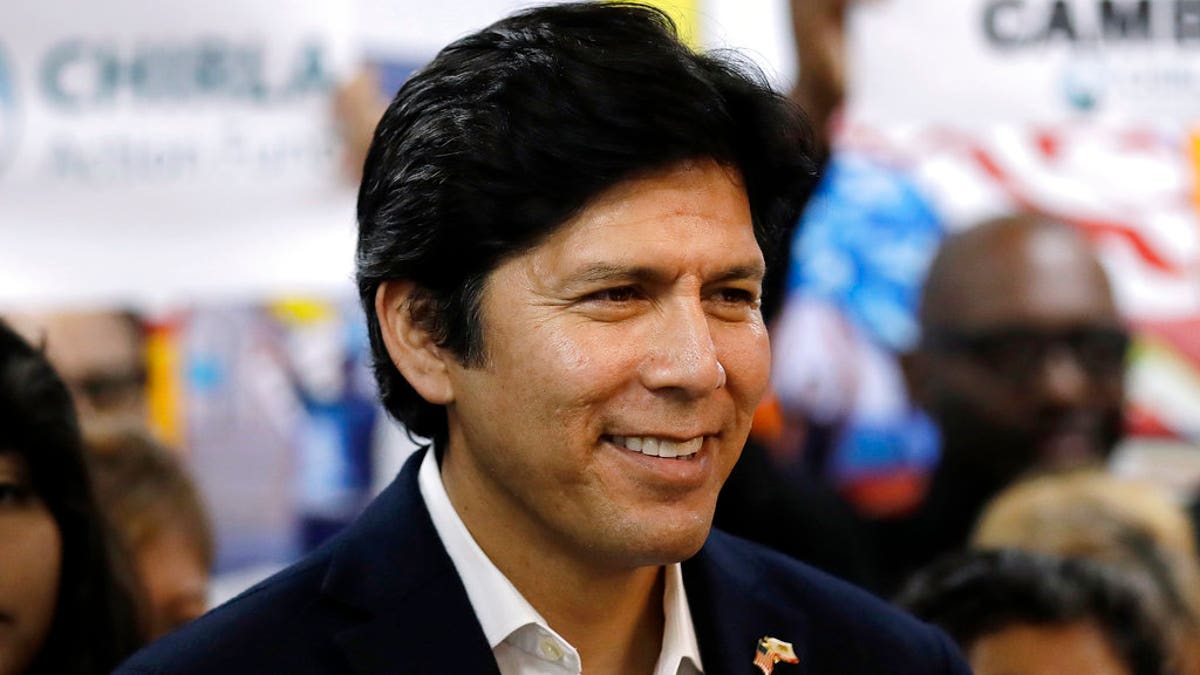
FILE -- In this Sept. 25, 2018 file photo state Sen. Kevin de Leon, D-Los Angeles, smiles during a campaign stop at CHIRLA Action Fund headquarters. (AP)
Ironically, some observers say, California conservatives may end up backing Feinstein for another term, when considering the alternative.
“If Republicans do anything in this election, they’ll try to keep Feinstein,” Dawn Wildman, founder of the California Tea Party Groups Coalition and the president of the Southern California Tax Revolt Coalition. “The last thing they want is de Leon in Washington. It’s a strategic vote to limit socialism.”
Wildman, who does a weekly conference call with conservative and Republican activists across the state, said, “after Kavanaugh, a shift happened, and a lot of conservatives were upset with Feinstein and the last-minute shenanigans that she pulled.” But, Wildman said, that anger has subsided after Kavanaugh’s confirmation. Further, many conservatives think that, at 85, Feinstein may not serve out her term, but de Leon, 51, would likely be in the U.S. Senate for some time to come, Wildman said.
Rather, it’s Feinstein’s own party’s hardcore base that she struggles with most – that base formally turned its back on her earlier this year, endorsing de Leon at the state Democratic party convention in July.
Her troubles mounted with the Kavanaugh drama – a Washington spectacle quietly set in motion over the summer.
In a late July letter to Feinstein, the ranking Democrat on the Senate Judiciary Committee, Christine Blasey Ford accused Kavanaugh of trying to rape her 36 years ago when both were teenagers. The letter was sprung on the public in September after the hearings seemingly concluded, prompting the committee to hold another day of testimony to hear Ford’s allegation and Kavanaugh’s denial. After a late FBI investigation into the accusation found no corroboration, the Senate voted 50-48 to confirm Kavanaugh.
Feinstein maintained all along she didn’t push the allegations earlier out of concern for Ford’s privacy, but her hand was forced by media reports and leaks. Her critics were unforgiving.
At a Trump rally in Council Bluffs, Iowa, the crowd chanted “lock her up” about Feinstein – a refrain once reserved for Trump’s vanquished 2016 rival Hillary Clinton. This came after the president said he was certain Feinstein leaked the Ford letter to the media, which Ford requested remain confidential. Feinstein issued a statement calling Trump’s assertions “ridiculous and an embarrassment.”
In California, de Leon also criticized Feinstein’s handling of the Ford accusation, saying acting so late amounted to a “failure of leadership” because the letter “was a valuable piece of info that you could have kept the confidentiality and kept her privacy and still dealt with the issue at hand.”
Feinstein’s campaign could not be reached for comment for this report, while de Leon’s campaign referred to a previous comment. After Kavanaugh’s confirmation, the challenger took a jab of Feinstein’s perceived collegiality.
“Today we saw the proof unfold before our eyes--that the old ways of doing things don’t work; and comity for comity’s sake is far too risky when a woman’s right to choose is on the line,” de Leon said in a statement after the confirmation.
Ray Haynes, a former Republican member of the California Senate and former chairman of the conservative American Legislative Exchange Council, said Feinstein was actually trying to strengthen her position in the state.
“The move by Feinstein was a move to solidify her support from Democrats because de Leon has been telling Democrats 'we need a fighter,'” Haynes said.
Haynes also speculated that conservatives will probably just skip this year’s Senate race.
Bill Press, former chairman of the California Democratic party in the 1990s, maintained that Feinstein – who has been a popular politician across party lines in California – will be safe.
“As far as Democrats are concerned, Kavanaugh is on the court and they’re not going to blame Dianne Feinstein,” Press, now a liberal talk radio host, told Fox News. “To say she didn’t try hard enough because if she released the letter earlier it would have had more impact is similar to the argument Chuck Grassley and Donald Trump are making. I don’t think de Leon wants to be associated with them.”
The Kavanaugh confirmation hasn’t been Feinstein’s only election-year controversy. In August, it emerged Feinstein once employed a Chinese spy, whom she fired after the FBI informed her. The staffer worked for Feinstein’s San Francisco office and allegedly delivered information to the Chinese consulate at the time she chaired the Senate Intelligence Committee. But the FBI didn’t bring charges because the staffer—who served as the senator’s driver and liaison to the Asian-American community—didn’t provide classified information to the Chinese.
Nevertheless, incumbency has its perks, and she is still leading. The contest, though, has certainly tightened in recent polls since Feinstein trounced de Leon in the June jungle primary, 44 percent to 12 percent, with rest of the vote divided among more than two-dozen candidates.
Fred Lucas is the White House correspondent for the Daily Signal.
